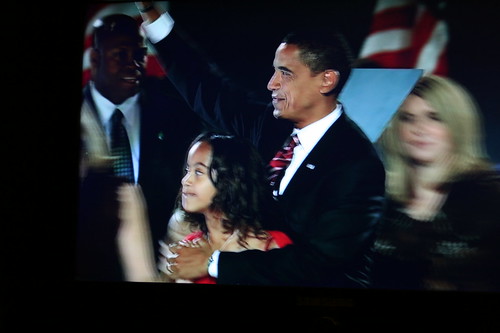This is Josh Moulitsas-Soros, acting CEO of Observationalism.com.
Most readers know that the views expressed on this blog are…
OK, just joking.
Ezra Klein uses the progressive blogosphere’s shitstorm in a teacup of the day to reflect on the agenda of the Third Way think tank, and how events since 2004 have overtaken it and made it irrelevant. It’s a good way to consider just how different things could have gone – and while we’re at it, to consider the looming reversal of roles between US liberals and European lefties.
It’s just four years ago, when Third Way was announced on November 11th, 2004, that this seemed like a good idea:
This was a week after John Kerry lost the presidential election, and the young organization was sold as a DLC for the next-generation. “As Democrats continue to stagger from last week’s election losses, a group of veteran political and policy operatives has started an advocacy group aimed at using moderate Senate Democrats as the front line in a campaign to give the party a more centrist profile,” wrote The Washington Post.
In other words, Third Way was formed under the theory that the Democrats’ problem in 2004 was that they were too far to the left, and as such, had lost middle class voters. The organization focused on upper middle class voters and followed the Mark Penn strategy of machine gun bursts of small, bite-sized policies meant to attract professional whites and rural voters.
Ezra does a good job in briefly sketching how quickly the Third Way’s strategy became an anachronism:
This year, Barack Obama was, on domestic policy, the most moderate of the major Democrats, which put him substantially to the left of every major Democrat running for president in 2004. His health care plan was more universal than Gephardt’s, his Iraq plan was more aggressively focused on withdrawal than Dean’s, and he was a black liberal from an urban center. Clinton and Edwards ran on similar platforms. None of them bore any obvious resemblance to the office park bait Third Way advocated. [..]
Third Way [..] were built as the vessel for a particular argument about the path to a Democratic resurgence, and their side of that debate lost. [..] Democrats have won atop something like the opposite of their advice and very different from their predicted majority coalition, which may explain why they’re acting so defensive.
All of which provides a good Zen moment to consider, even amidst my kind of bellyaching about Obama’s appointees, the blessings there are to count. You could have ended up with the Third Way recipe. Instead, the Democratic Party’s has moved left even as it gained political dominance.
This doesn’t just hold up in comparison with what the future looked like in 2004, either. Take the 850 billion euro economic stimulus plan the Democrats are preparing. That’s 6% of America’s GDP, more or less. Now compare the €200-billion stimulus plan that EU leaders eventually agreed on last week that involves the member states pumping the equivalent of 1.5% of GDP into their economies.
Alternatively, consider the £20-billion British stimulus package that Gordon Brown is proposing. On the eve of the EU summit, it stirred the German finance minister into a frenzied tizzy in Newsweek about “tossing around billions,” a deplorable “breathtaking switch” to “crass Keynesianism,” and the “breathtaking and depressing … speed at which proposals are put together .. that don’t even pass an economic test” – and that’s a plan that involves, if I’m getting the numbers right, all of 1.6% of British GDP.
Basically, after years in which European lefties like me groaned about a Democratic Party so milquetoast it would be a right-wing party in our countries, we’re suddenly faced with American peers who are moving more boldly to tackle the economic crisis than any EU government seems able or willing to do. While Obama’s party appears to be prepping a rapid shift of perspective to rediscover the wisdom of Keynesianism, the European governments are shackled by the EU’s deficit rules. It might not be long before we actually cast a jealous eye on those American peers we disdained just a few years ago.


 This story
This story

